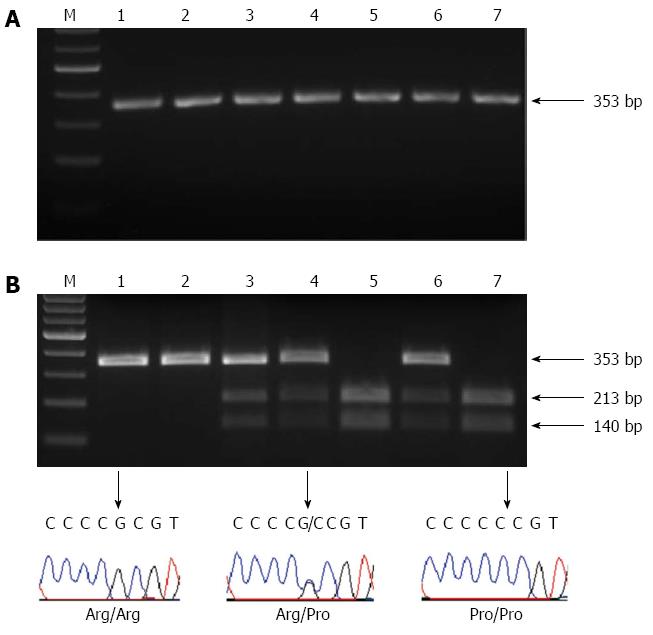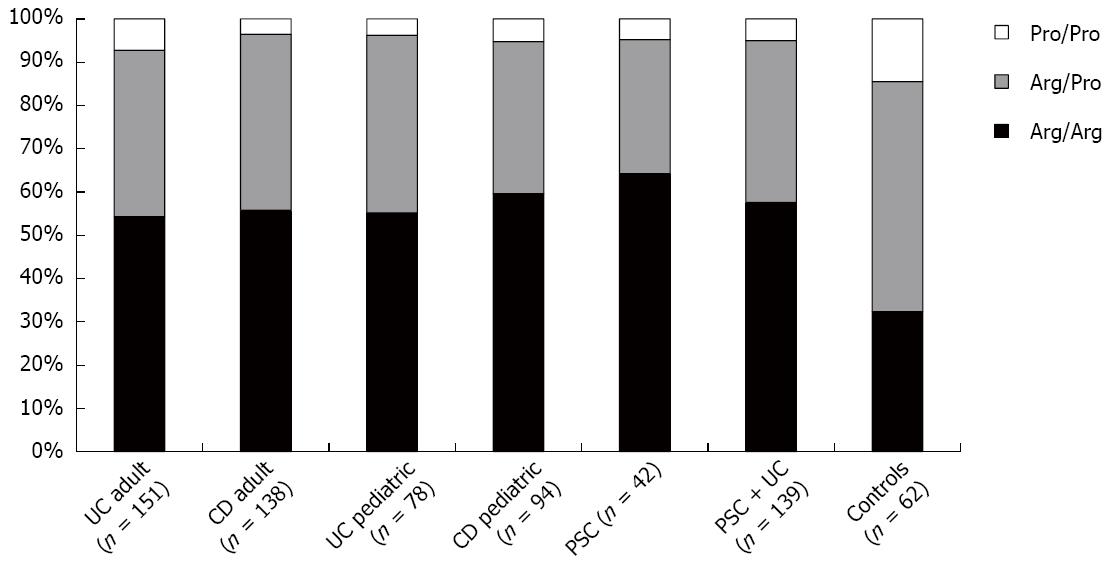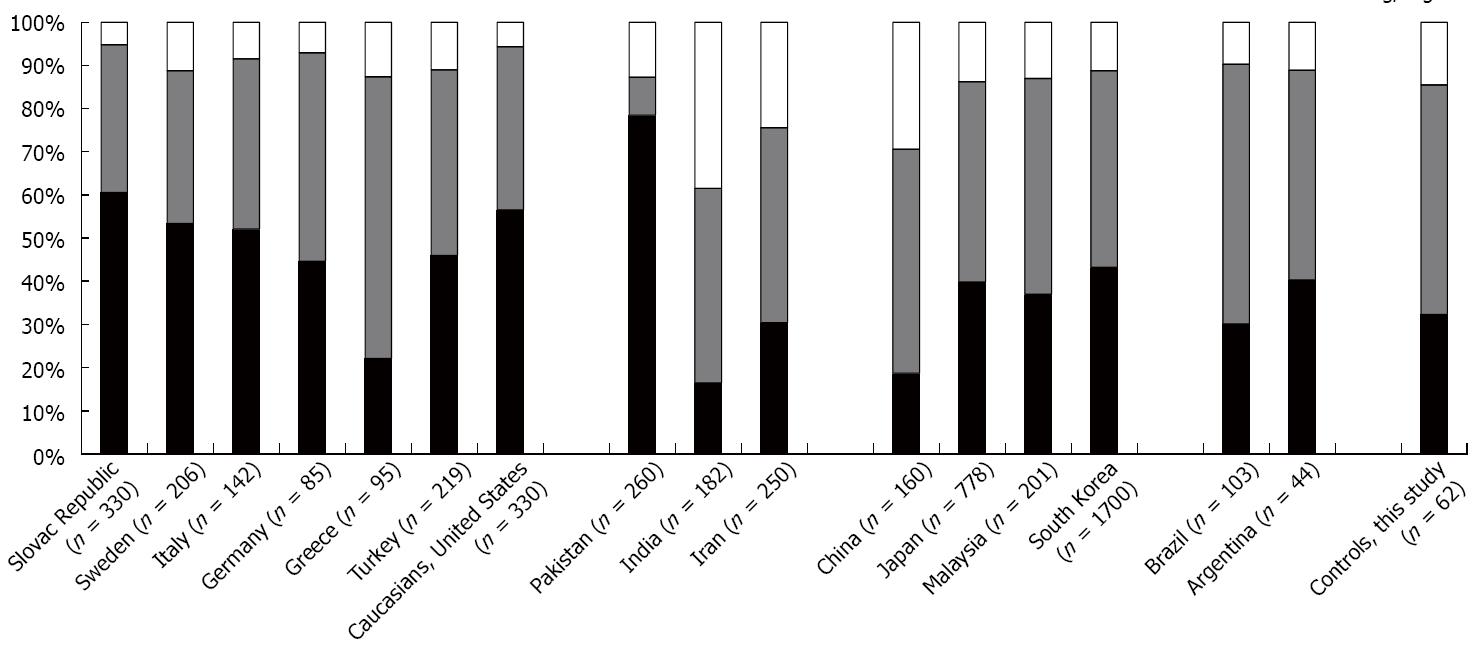Copyright
©The Author(s) 2015.
World J Gastroenterol. Sep 28, 2015; 21(36): 10358-10366
Published online Sep 28, 2015. doi: 10.3748/wjg.v21.i36.10358
Published online Sep 28, 2015. doi: 10.3748/wjg.v21.i36.10358
Figure 1 Polymerase chain reaction-restriction fragment length polymorphisms analysis.
A: A representative analysis of the polymerase chain reaction (PCR) product. The product corresponded to TP53 with a single band at 353; B: The PCR-restriction fragment length polymorphisms (PCR-RFLP) analysis and sequencing results of TP53 codon 72 polymorphism. The Pro allele was not cleaved by BstUI and had a single 353 bp band (lanes 1 and 2). The Arg allele was cleaved by BstUI, yielding two fragments 213 and 140 bp (lanes 5 and 7). Heterozygotes contained all three bands (lanes 3, 4 and 6). RFLP results were confirmed by direct sequencing of 100 randomly selected samples. M: Molecular weight marker.
Figure 2 TP5372Arg/Pro polymorphism distribution in adult and pediatric inflammatory bowel disease, primary sclerosing cholangitis (PSC), PSC/ulcerative colitis (UC) and healthy non- inflammatory bowel disease (IBD) controls.
TP53 72Arg homozygosity is strongly associated with the development of IBD. Please find P values and ORs in Table 2.
Figure 3 TP53 72Arg/Pro polymorphism distribution in non-inflammatory bowel disease controls in different countries and comparison to controls utilized in this study (mainly of Eastern European descent).
References for indicated bar graphs: Slovak Republic[55], Sweden[30]; Italy[41], Germany[33], Greece[32], Turkey[36], Caucasians/United States[40], Pakistan[56], India[57], Iran[34], China[58], Japan[38], Malaysia[35], South Korea[39], Brazil[59], Argentina[31].
- Citation: Volodko N, Salla M, Eksteen B, Fedorak RN, Huynh HQ, Baksh S. TP53 codon 72 Arg/Arg polymorphism is associated with a higher risk for inflammatory bowel disease development. World J Gastroenterol 2015; 21(36): 10358-10366
- URL: https://www.wjgnet.com/1007-9327/full/v21/i36/10358.htm
- DOI: https://dx.doi.org/10.3748/wjg.v21.i36.10358











